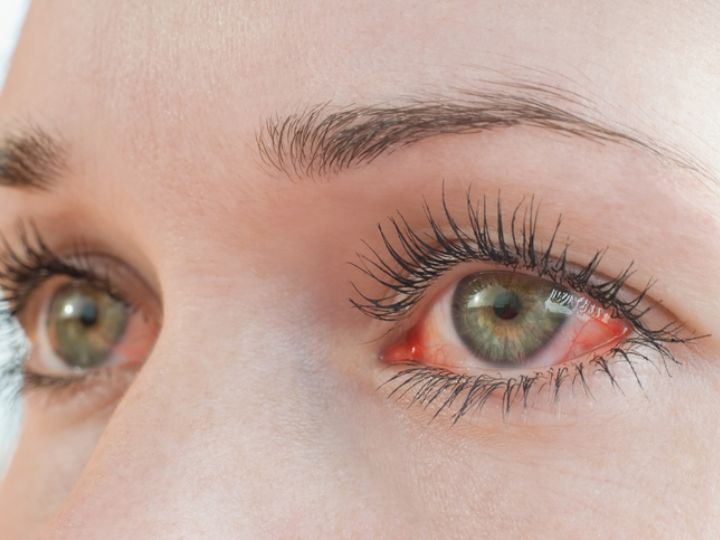All Categories
Featured

While most individuals recognize the importance of safeguarding their skin from the sun, the damaging results of ultraviolet (UV) rays on eye health often go forgotten. However, excessive direct exposure to UV radiation can lead to a series of eye issues, some of which can result in irreversible damage. Whether you're soaking up the sun on a summer season day or strolling outdoors on an over cast mid-day, safeguarding your eyes from UV rays is crucial. Below's what you need to recognize regarding the results of UV radiation on your eyes and exactly how to safeguard them.
What Are UV Rays? UV rays are a sort of electro-magnetic radiation sent out by the sun. They are classified right into three kinds:
UVA Rays: These pass through deep into the skin and eyes and can add to lasting damage. UVB Rays: These rays are extra extreme than UVA and are mainly liable for surface-level damage to the eyes and skin. UVC Rays: These are the most dangerous however are mainly soaked up by the Planet's ozone layer and do not normally reach us. UVA and UVB rays are the main perpetrators behind eye-related damage.
Short-Term Results of UV Exposure on the Eyes. Also short-term direct exposure to intense UV rays can harm your eyes. One typical condition brought on by this is photokeratitis, or "sunburn of the eye." Signs of photokeratitis include:
Excruciating, red eyes. Level of sensitivity to light. Tearing or excessive watering. Momentary vision loss or fuzzy vision. Photokeratitis is generally short-lived, but it serves as a warning of how damaging UV exposure can be, even in small doses.
Long-Term Results of UV Direct Exposure. Long term direct exposure to UV radiation can lead to extra major and long-term eye problems, such as:
Cataracts: UV rays can speed up the development of cataracts, a condition that causes clouding of the eye's all-natural lens, resulting in blurry vision and, if unattended, blindness.

Macular Deterioration: UV direct exposure can harm the retina, particularly the macula, boosting the threat of age-related macular degeneration (AMD), which affects central vision.
Pterygium: A development of cells on the white part of the eye that can cross the cornea, triggering discomfort, inflammation, and vision issues.
Pinguecula: UV direct exposure can trigger yellow-colored down payments to develop on the conjunctiva, bring about irritation and dryness.
Skin Cancer Around the Eyes: The fragile skin bordering your eyes is extremely vulnerable to UV radiation, boosting the risk of skin cancers cells like basal cell cancer and squamous cell carcinoma.
Just How to Shield Your Eyes from UV Rays. Protecting your eyes from UV rays is straightforward and calls for a couple of mindful routines:
Purchase High Quality Sunglasses: Choose sunglasses that obstruct 100% of UVA and UVB rays. Try to find tags that specify "UV 400" defense. Wrap-around styles are suitable as they block UV rays from the sides as well.
Use a Wide-Brimmed Hat: A hat with a brim at the very least three inches wide can significantly decrease UV exposure to your eyes and face.
Restriction Direct Exposure During Peak Hours: UV rays are greatest between 10 a.m. and 4 p.m. If you have to be outdoors during these hours, make certain you're effectively safeguarded.
Don't Be Fooled by Clouds: UV rays can permeate through clouds, so it is essential to wear sunglasses even on cloudy days.
Protect Your Eyes Year-Round: Snow, sand, and water can reflect UV rays, escalating their effects. Eye protection isn't just for warm summer season days-- guarantee you're covered in all periods.
Usage UV-Blocking Contact Lenses: Numerous call lenses currently include UV defense. If you wear calls, ask your ophthalmologist about lenses with integrated UV filters for added protection.
Urge Eye Protection for Kid: Kid's eyes are much more conscious UV rays due to the fact that their lenses are more clear, permitting even more radiation to reach the retina. Make sure they put on sunglasses and hats during outside tasks.
Routine Eye Tests. Normal examinations with an eye care expert are essential for very early discovery of any UV-related damages. An optometrist or ophthalmologist can review your eyes, advise protective measures, and spot problems like cataracts or macular degeneration early.
Verdict. By using UV-blocking sunglasses, restricting sunlight exposure throughout height hours, and staying regular with eye examinations, you can guarantee your eyes stay healthy and your vision continues to be clear for years to come. Shielding your eyes from UV radiation isn't just concerning comfort-- it's an important action in protecting your lasting eye health and wellness.
Latest Posts
The Advantages of Plastic Fence from Washington Fencing
Experience Beachfront Dining at Deauville Inn's Sunset Deck
Fast & Reliable Auto Repairs - Reserve Your Spot with Montclare Auto Repair Hassle-Free
More
Latest Posts
The Advantages of Plastic Fence from Washington Fencing
Experience Beachfront Dining at Deauville Inn's Sunset Deck
Fast & Reliable Auto Repairs - Reserve Your Spot with Montclare Auto Repair Hassle-Free